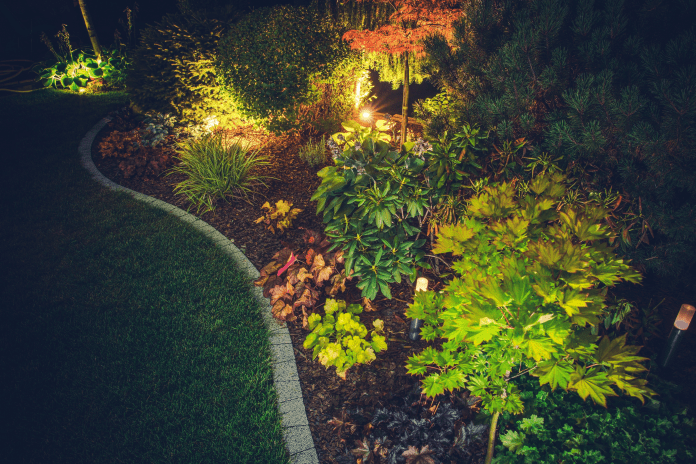With the UK’s current lockdown having sparked a huge spike in gardening as an increasing number of Brits seek to use the extra downtime to rejuvenate their green spaces, NICEIC is keen to raise awareness of the risks associated with electrical work in the garden.
As the nation has continued to adjust to life under lockdown, it is reported that more of us than ever are taking up a keen interest in gardening with the Royal Horticultural Society reporting a sharp increase in inquiries and composting sales having soared.1
However, NICEIC is keen to remind this new wave of green-fingered Brits that – should their gardening enthusiasm extend to investing in new electrical equipment for the garden, such as lighting or water features – it is paramount that it is installed correctly and safely.
Darren Staniforth, NICEIC’s Senior Technical Presenter: “With temperatures on the up, it will come as no surprise that many people will be using the extra time at home to improve their garden spaces and make changes that they might not have chance to do. However, for us the concern lies in that people may get carried away and attempt to dabble in potentially dangerous electrical work too without having the right skills and knowledge to install it properly and safely.
“It’s important to remember that due to the added risk posed by ever changing weather, the garden is considered a high-risk area and any new electrical equipment should be installed exacting to key safety standards.”
Inherently, due to additional potentially hazardous elements such as adverse weather and associated ‘wet products’, such as sprinklers, hoses and paddling pools, the garden presents one of the biggest areas of risk when it comes to electrical safety. According to research2 by the Electrical Safety First charity, one in 10 people in the UK have experienced an electric shock or accident while using an electrical appliance in the garden.
Darren adds: “In terms of using electrical equipment in the garden safely, it’s about operating basic common sense; for example, buying electrical goods from reputable retailers and ensuring they are suitably weatherproof, and making sure all cables and cords out kept firmly out of reach where necessary. Also, obviously water and electrics don’t mix; so all water-related products, such as hoses, sprinklers and paddling pools should be placed away from electrical equipment.
“Crucially though, it’s important to note that any electrical work in the garden should always be conducted by a professional. We know during this time, it may be all too tempting to have a go at installing, say, a new garden feature or lighting. However, the reality is it simply is not a risk worth taking and homeowners would be best placed to wait until they are able to call on the services of a competent, certified professional – and, in turn, keep their homes and families safe.”
Using a registered electrician such as those with NICEIC ensures carrying out electrical work is done safely and to a high standard. You can search for a registered electrician in your area by visiting www.niceic.com
Help keep news FREE for our readers
Supporting your local community newspaper/online news outlet is crucial now more than ever. If you believe in independent journalism, then consider making a valuable contribution by making a one-time or monthly donation. We operate in rural areas where providing unbiased news can be challenging. Read More About Supporting The West Wales Chronicle

























